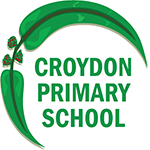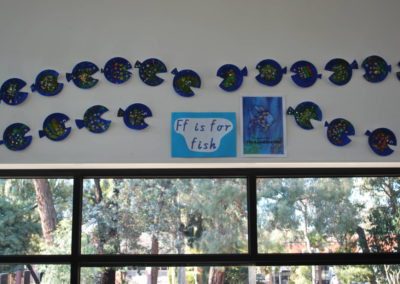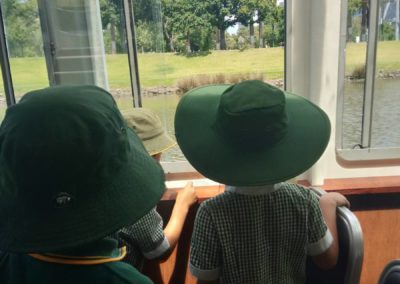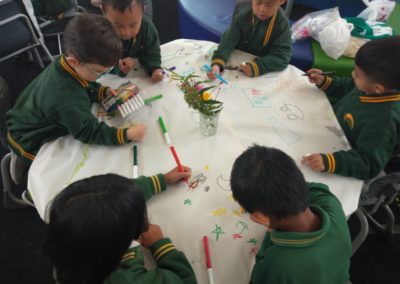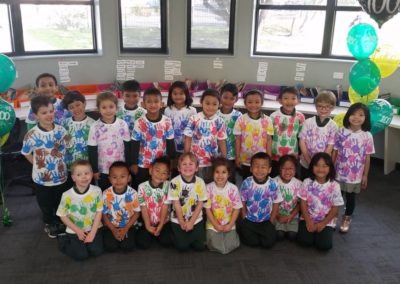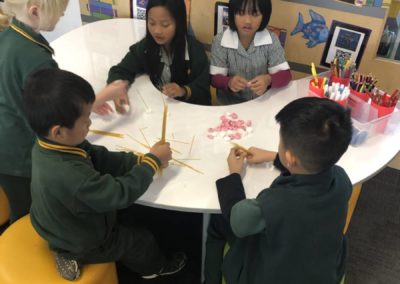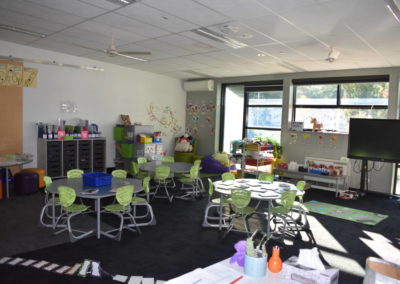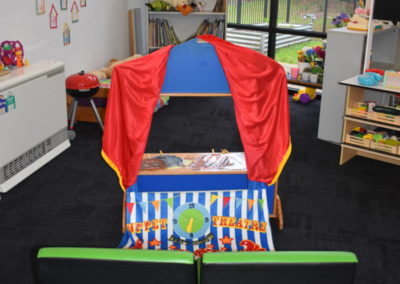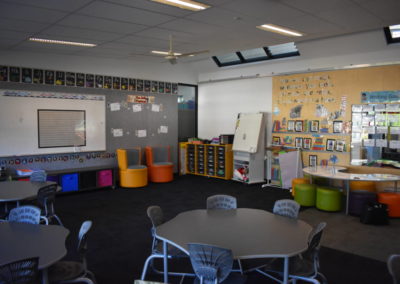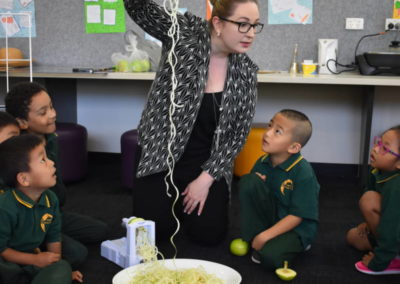Junior School P-2
LITERACY
Language Experience
At Croydon Primary School we believe that “Reading and Writing float on a sea of talk!”
Research tells us that vocabulary development is the greatest indicator of Reading and Writing success. To support this P -2 students follow a Language Experience approach. Each week classes have an “experience” on Monday morning. This can be a science experiment, cooking or literature based. The students talk animatedly about what they are doing which then translates in detailed writing and supports the book that is the focus that week.
Phonics, Cued Articulation and Sight Words
An effective and comprehensive Literacy program uses all appropriate strategies. All teachers use cued articulation hand signals to help their students differentiate between different sounds. Students work on a specific letter and sound each week and use this knowledge to ‘sound’ out when reading and writing.
Not all words can effectively be sounded out though- for example the first two counting numbers, one and two, so words such as these are learned by “sight”.
A comprehensive program that mixes both strategies is the most effective.
Finger Gym / Handwriting
All students take part in fun strengthening finger gym activities to support their writing skills. This program has extended the amount students can write with concern of a “sore hand or wrist”.
Handwriting is taught at all year levels. Brain theory tells us that words that are written by hand are retained better than those that are typed, and at all levels we ensure a balance of handwriting and use of ICT tools.
MATHEMATICS
Croydon Primary School has an emphasis on the Mathematics program being linked to real life experiences. Students study the ‘big ideas” in Mathematics to ensure a solid foundation. In the Junior school this is particularly , Trusting the Count and Place Value.
Hands on activities ensure engagement and greater understanding of all Mathematic concepts.
INTEGRATED STUDIES
Areas of the curriculum such as Science, Geography, History, Health and Design Technologies are taught each term within an inquiry unit that puts the work into a real life context. We believe these concepts are understood better within a term unit rather than “one off” lessons.
Within these units intercultural, personal and social capabilities and critical and creative thinking are woven into the explicit teaching, inquiry and tasks the students complete.
ICT
All students have access to class sets of iPads and Notebook computers. Students use these when they are the best tool for the activity and to learn specific ICT skills.
“Bee Bots” are used to teach coding and 3D printers have been recently implemented.
